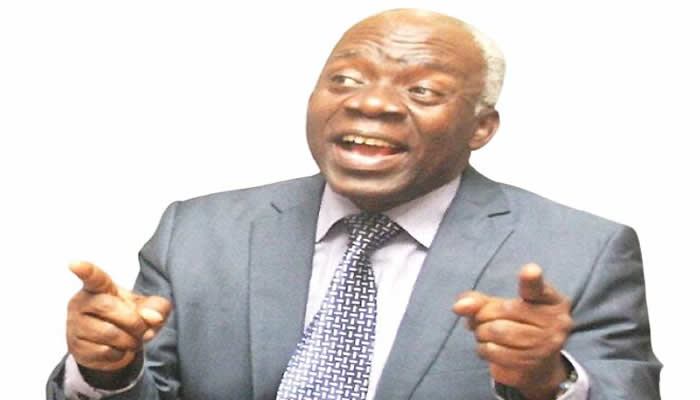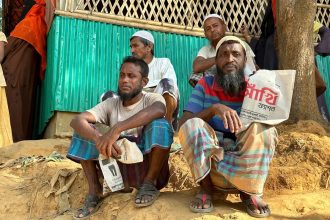Human rights lawyer, Femi Falana (SAN), has urged President Bola Tinubu to take a more proactive approach in tackling the growing poverty crisis in Nigeria by fully committing federal resources to social welfare initiatives.
He made this known in a statement he issued on Sunday.
Falana’s statement comes days after Tinubu addressed governors of the All Progressives Congress, urging them to deepen their grassroots interventions to ease economic hardship.
“Nigerians are still complaining at the grassroots. To you, the governors, you must wet the grass more and deliver progressive change to Nigerians. May God bless our democracy and grant us more fertile lands”, Tinubu had told the APC governors.
Reacting to the President’s call, Falana insisted that the responsibility to initiate concrete welfare action lies primarily with the Federal Government.
“Instead of begging state governments to ‘wet ground more’, President Bola Tinubu is urged to ensure that the National Social Investment Programme Agency Act is adopted and enacted into law by the 36 state governments,” he said.
He argued that rather than channelling large sums of public funds into administrative or infrastructural luxuries, both federal and state governments must prioritise effective social protection measures for the poor.
Falana also criticised the disparity in federal spending, comparing the ₦32.7 billion earmarked for Nigeria’s National Social Investment Programme in the 2025 budget with a recent project that gulped even more.
“A government that recently claimed to have spent the sum of ₦39 billion for the renovation of the International Conference Centre at Abuja at the Federal Capital Territory cannot justify the allocation of ₦32.7 billion to fund the National Social Investment Programmes for 2025 to support the 133 million people that are said to be multi-dimensionally poor in the country,” he argued.
According to Falana, sufficient funds exist to support such programmes—if only there’s the political will to prioritise them. He referenced data from the Federation Accounts Allocation Committee, which reportedly disbursed over ₦11.19 trillion to all tiers of government in the past year.
He also cited a recent analysis by civic tech group BudgIT, which alleged that the 2025 federal budget includes over 11,000 suspicious projects worth a staggering ₦6.93 trillion—inserted by the National Assembly.
Falana said this budget padding highlights how skewed the country’s fiscal priorities have become, especially when contrasted with the generous allowances paid to federal lawmakers.
He questioned the logic of a system where: “₦21 million is paid monthly to each senator and ₦15 million to each member of the House of Representatives,” yet essential social programmes remain underfunded.
Falana, therefore, urged the Federal Executive Council to show the same urgency it applies to infrastructure spending to the country’s welfare sector.
“Therefore, the Federal Executive Council should, as a matter of urgency, approve not less than ₦5 trillion to fund the National Social Investment Programme,” he said.
To ensure accountability and impact, Falana further recommended that the administration of the fund should include representatives of labour unions and trusted civil society groups—not just government appointees.
“The management of the fund should not be left solely in the hands of government officials, but should involve elected representatives of trade unions and credible civil society organisations to ensure transparency and effectiveness,” he advised.









